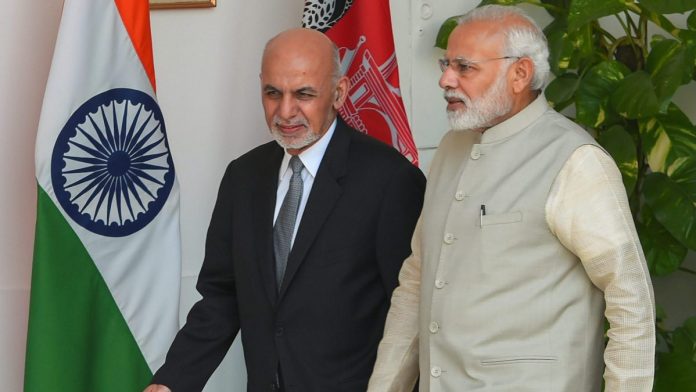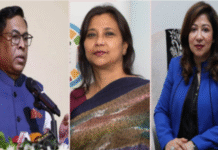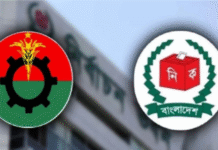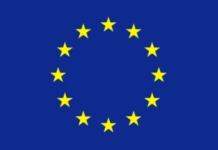India must change its risk-averse stand on Afghanistan, given new Russia-Pak-China bonhomie
India has maintained a policy of not engaging with the Taliban and pressing for an Afghan-owned and Afghan-led peace initiative.

Islamabad’s – read Rawalpindi’s – sole focus for decades has been the installation of a pro-Pakistan and anti-Indian government in Afghanistan.Pakistan’s repeated attempts to force a unilateral solution to the Afghan problem, while undermining and manipulating the interests of other regional players, continue to complicate the search for regional peace and stability.
Although India’s soft power diplomacy has vastly benefited the war-ravaged Afghanistan, other diplomatic aspects should not be ignored as over-reliance on the developmental approach can limit our other options in the long run.
An astute combination of several diplomatic options is therefore required to safeguard India’s interest in Afghanistan in this dicey scenario.
India needs to step up its diplomatic engagement with elements within Afghanistan that have been and continue to be victimised by Islamabad. In coordination with Washington and Kabul, it is now time for New Delhi to open renewed lines of communication with those in Afghanistan who seek to assert their country’s sovereignty vis-à-vis Pakistan. India would also do well to pivot towards providing support to marginalised minorities in the Afghan state that have often viewed Pakistan’s involvement with suspicion. The reasons are simple.
Also read:Afghanistan’s hope for peace rests on how India, Pakistan and China deal with each other
Why Pakistan wants to be onboard
Pakistan’s periodic offers of assistance for a peace settlement in Afghanistan have been less about ‘peace’ and more about ‘keeping India out’. With Ambassador Zalmay Khalilzad, the United States special envoy for Afghan reconciliation, desperately seeking a face-saving peace settlement, instead of encouraging talks between the Afghan government and the Afghan Taliban, Pakistan is once again trying to leverage its location.
Pakistan recently grabbed the opportunity to host a conference of leading Afghan political personalities,most of whom oppose President Ashraf Ghani. Prominent among those who attended the conference in June was the head of the Afghan High Peace Council, Mohammad Karim Khalili, the leader of the Jamiat-e-Islami, Ustad Atta Mohammad Noor, and the Hezb-e-Wahdat leader Mohammad Mohaqiq. Representatives of Uzbek warlord General Abdul Rashid Dostum and presidential candidate Haneef Atmar were also present.
Pakistan’s foreign minister Shah Mehmood Qureshi, who addressed the inaugural session of the conference, said that “the vicious circle of mistrust, often fed into by our common enemies, has affected our relationship. The blame-game has not helped either of us. It is indispensable to move away from this negative paradigm. It is incumbent upon the leadership of the two countries to take practical steps to build mutual trust and confidence”. If, as some analysts argue, Pakistan convinces the Afghan Taliban to agree to negotiate with the Ghani regime, it would go a long way in improving Pakistan’s fractured ties with Afghanistan and may also bring its strained ties with the US on track.
However, what incentive does the Pakistani establishment have to push the Afghan Taliban to negotiate with the government? Pakistan’s only allies or proxies – the Afghan Taliban and the Haqqani network – cannot win elections inside Afghanistan. The only way they can come to power is if they are installed through outside assistance. What Pakistan’s security establishment hopes is that the Americans and others will be persuaded to help this happen and till that time, Pakistan will pretend to help but will remain the spoiler.
Also read: On Noida’s cricket greens, a familiar feel when Afghanistan take the field
Balancing US & Taliban
Over the decades Pakistan’s officials have oscillated between arguing that they have no control over the Afghan Taliban to claiming their historical leverage has declined. However, as long as the Afghan Taliban leaders have safe havens inside Pakistani territory, Rawalpindi will continue to retain sufficient leverage.
Having concluded that due to domestic political considerations, America lacks a political will to sustain its involvement in the treacherous terrain of Afghanistan, Pakistan’s security establishment has hedged its bets by supporting the US war effort in Afghanistan, but also ensured that the Taliban leadership survives to negotiate the political settlement when the conflict ends.
Having consistently argued that the Taliban’s rehabilitation in Afghan governing structures is the only way to end the war in Afghanistan, Islamabad brokered the first direct talks between the Afghan government and the Taliban in July 2015, but the process got derailed after the death of Mullah Omar, accentuating schisms within the Taliban. Sartaj Aziz, then de-facto foreign minister of Pakistan, publicly voiced his unhappiness, arguing that the leak of the news of Omar’s death “not only scuttled the Afghan peace process, it also let to the splintering of the Taliban”.
The chances of resuming the peace process were further shattered after Mullah Mansoor, Omar’s successor— described by the Pentagon as “an obstacle to peace and reconciliation between the government of Afghanistan and the Taliban”—was killed in a US drone strike. This left Pakistan enraged once again as Islamabad had invested heavily in helping Mansoor secure the leadership of the Taliban after Omar.
Several attempts to revive the stalled peace process have been made since then, with little success. However, Prime Minister Imran Khan frequently claims credit for his country to have arranged talks between Khalilzad and the Taliban.
Also read: Why Pakistan continues to support the Taliban in Afghanistan
Rise and rise of Afghan Taliban
The Afghan Taliban also have little incentive to stop fighting as they believe they are winning against the Afghan government forces supported by the US military. The Taliban have opened new battlefronts in recent months across the country as Afghan security forces have suffered heavy casualties and desertions. On the eve of the latest round of peace negotiations in Qatar, the Taliban claimed responsibility of killing dozens of government forces and civilians in attacks across Afghanistan.
There appears to be a semi-regional consensus on the future of Afghanistan as Pakistan, China and Russia are on the same page. There is growing recognition of the Afghan Taliban as the most important component of the peace process and the potential it has in fighting the Islamic State to bring stability to Afghanistan.
While China and Pakistan have been playing an instrumental role in the peace process for a while through several initiatives, Russia has also begun to get actively involved.
India must change stance
Where does India stand? From Delhi’s vantage point, the biggest blunder of the US war in Afghanistan has been its failure to address the insurgent sanctuaries – the lifeline of the Taliban – in Pakistan. With Washington now seeking to once again leave Afghanistan, India needs to be alert about its options, the best of which is to remain close to and support the legitimate Afghan regime.
Today there is little that binds India with Russia vis-à-vis Afghanistan. In the changing geopolitics of South and Central Asia, Russia has been increasingly coordinating its actions with China and Pakistan on how the Afghan issue should be addressed. It needs to be pointed out that when Moscow had hosted the first meeting on Afghan conflict in December 2016, it was only Russia, China and Pakistan who got to attend it.
Also read: Afghan President Ghani is praising Pakistan & releasing Taliban leaders. Something’s fishy
After pushback from Afghanistan and India, it was decided that the invitation would be extended to theAfghan government, New Delhi and a few Central Asian countries in subsequent conferences hosted by Russia.
In November 2018, India sent two of its former diplomats in “non-official” capacity to a conference in Moscow, which was also attended by a Taliban delegation.
At the latest talks on Afghan peace held in Moscow in May, the Taliban delegation, led by chief negotiator Mullah Abdul Ghani Baradar, met many opposition Afghan politicians. The Russian involvement suits Islamabad as the Taliban’s consistent refusal to deal directly with the Ghani regime has made Moscow and Beijing advance Pakistan’s agenda.
The growing Russia-Pakistan-China bonhomie on Afghanistan is being watched closely by New Delhi. India has maintained a policy of not engaging with the Taliban and pressing for an Afghan-owned and Afghan-led peace initiative. However, New Delhi’s risk-averse, low-profile, developmental approach to conflict resolution in Afghanistan may need some adjustment and coordination with both Kabul and DC.
Aparna Pande is a Research Fellow and Director, India Initiative at the Washington-DC based Hudson Institute. Vinay Kaura is an Assistant Professor and Coordinator, Centre for Peace and Conflict Studies, Sardar Patel University of Police, Security and Criminal Justice. Views are personal
Want to hear experts engage over the big issues of the day? We bring you TalkPoint









